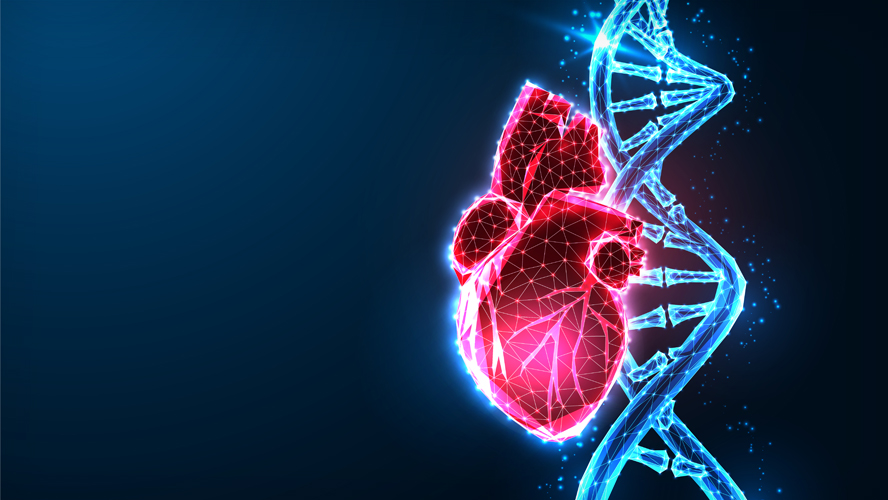
Recent research from a joint effort between the teams of Dr. Phyllis Billia, Senior Scientist at Toronto General Hospital Research Institute (TGHRI), Dr. Harry Rakowski, Clinician Investigator, Princess Margaret Cancer Centre (PM), Dr. John Dick, Senior Scientist at PM and Dr. Sagi Abelso, Scientist at Ontario Institute in Cancer Research, has uncovered critical links between genetic mutations and cardiovascular events in patients with hypertrophic cardiomyopathy (HCM).
HCM is an inherited disorder marked by abnormal thickening of the heart muscle, affecting about 1 in 500 individuals. While the condition is primarily genetic, its impact varies widely among patients. The study delved into the phenomenon of clonal hematopoiesis (CH), a condition in which blood stem cells acquire genetic mutations, and its connection to major adverse cardiovascular events.
This research examined 799 HCM patients and revealed that 22.9% carried CH mutations. The team found that these patients were more likely to experience severe symptoms and worse outcomes, such as heart failure, strokes, or even the need for a heart transplant. The most affected patients carried mutations in genes like DNMT3A, TET2, and ASXL1, significantly increasing their risk.
This breakthrough highlights the importance of collaboration within UHN’s research ecosystem. By combining expertise in cardiology and cancer research, the study showcases how partnerships between scientists can lead to critical discoveries that improve patient outcomes.
This multidisciplinary research approach not only deepens our understanding of complex diseases but also paves the way for future innovations in health care. The findings from this research emphasize the need for early screening and personalized treatments for at-risk heart patients.
This work was supported by the Peter Munk Cardiac Centre Innovation Fund and UHN Foundation. For additional disclosures, read the publication.
Dr. Phyllis Billia is a Senior Scientist at the Toronto General Hospital Research Institute (TGHRI), director of research for the Peter Munk Cardiac Center and the Ted Rogers and Family Chair in Heart Function, University Health Network. She is also an associate professor at the Department of Medicine, University of Toronto, the Medical Director of the Mechanical Circulatory Support Program, and the Co-Director of the Peter Munk Cardiovascular Biobank.
Dr. John Dick is a Senior Scientist at the Princess Margaret Cancer Centre and a professor at the Department of Molecular Genetics, University of Toronto. He is also the Canada Research Chair in Stem Cell Biology.
Dr. Harry Rakowski is a Clinician Investigator, Peter Munk Cardiac Center, University Health Network.
Dr. Sagi Abelson is a Principal Investigator at the Ontario Institute for Cancer Research and an assistant professor at the Department of Molecular Genetics, University of Toronto.
Dr. Fernando Scholari, postdoctoral researcher at UHN, was first author of this study.
Scolari FL, Brahmbhatt D, Abelson S, Lee D, Kim RH, Pedarzadeh A, Sakhnini A, Adler A, Chan RH, Dick JE, Rakowski H, Billia F. Clonal haematopoiesis is associated with major adverse cardiovascular events in patients with hypertrophic cardiomyopathy. Eur J Heart Fail. 2024 Aug 1. doi: 10.1002/ejhf.3408. Epub ahead of print. PMID: 39091134.




